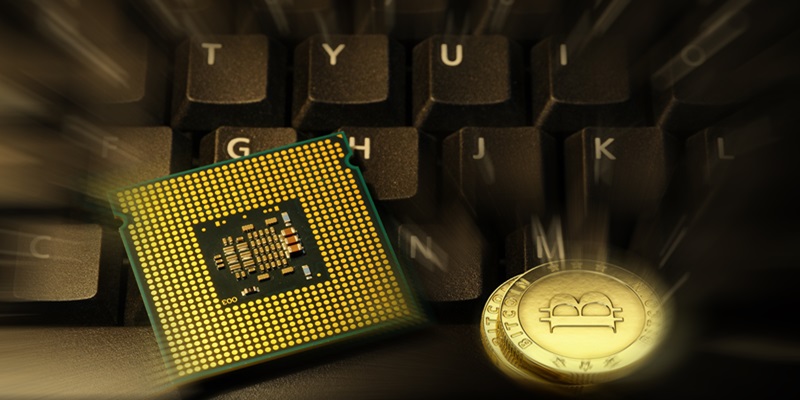Chris Reilly note: Did you hear about Google’s (GOOG) big breakthrough in quantum computing?
The tech giant unveiled its “Willow” quantum computing chip this week, a groundbreaking achievement.
Google claims Willow can solve certain computational tasks in just five minutes, which would take classical supercomputers 10 septillion years.
That’s longer than the universe has been around. 10,000,000,000,000,000,000,000,000 years, to be exact!
With this kind of speed, everyone now wants to know... could quantum computers render encryption methods obsolete and spell the end of bitcoin (BTC) as we know it?
I asked our analysts what to make of the news during our RiskHedge Reserve call, reserved for lifetime members.
But because this is such a big deal, I’m sharing their responses with you today.
***
Stephen McBride: It's important to point out, first of all, that this was a benchmark test specifically chosen for quantum computers. So for everything “practical,” normal computers are still better.
Willow is incredibly powerful in a very specific way. It solves highly specialized math problems much faster than traditional computers. But if you were to take this and try to run an artificial intelligence (AI) system on it, the traditional computer would still be better.
Regarding crypto specifically, Willow is nowhere near powerful enough to crack bitcoin seed phrases. It only has 105 qubits, which is great for quantum experiments but far from what's needed to break bitcoin’s encryption. Experts estimate you'd need about 1 million high-quality qubits to make a dent in bitcoin’s security.
More than that, I recently met a guy in San Francisco who told me he's backing a startup that's working on quantum cryptography. As quantum computers get more powerful, bitcoin won’t just “stand still”... it’ll just adopt whatever the new standard is.
One more thing...
People have asked, “Is this the new ChatGPT moment?”
|
No. This is like back in the 1940s when we invented the first-ever computer. Quantum computers are not just a faster computer; they're a new type of computer that do completely different things.
So that's where we are. And I would just also remind people that the first AI paper was published in 1943, so that was 80 years before we got ChatGPT.
Quantum computing's going to be big, but it's going to take a long time.
Chris Wood: The underlying concern here is that when someone’s able to build a large-scale quantum computer, they'll be able to break the current cryptographic underpinnings or the security of bitcoin's keys. And if you can do that, you can steal it.
Google's announcement is profound. The improvements in coherence and error correction with the Willow chip are significant. This new chip should convert folks who were skeptical that a real, useful quantum computer could ever be built.
But there's still a long way to go. By Google's own roadmap, the new chip represents milestone two of six on the path to a large error-corrected quantum computer.
Another point is there are ways to encrypt data that would theoretically be “unhackable,” even by a true quantum computer. And the way you do that is to take advantage of the same area of physics—quantum mechanics—that quantum computers use.
So (bear with me here), where quantum computers leverage superposition and entanglement to do countless calculations at once... you can build encryption that takes advantage of a fundamental law of quantum mechanics. If you try to observe or measure a particle or quantum system, you change its state.
So if you try to eavesdrop on a transmission like this, you basically corrupt it, and you can’t read it.
This is already being done in the real world. It's called quantum key distribution (QKD). Toshiba, for example, has a QKD system that uses single particles of light called photons to make encryption keys to secure data that's being sent from a facility in London to a facility 30 miles away.
The point here is that there are a lot of smart people thinking about these issues and coming up with solutions—solutions that could be used for crypto and blockchains. So I don't think even a large quantum computer means the end of crypto or blockchain technology.
Justin Spittler: From a trader's perspective, if Google’s breakthrough was a significant threat to bitcoin right now, bitcoin wouldn't be above $100K again.
And it wouldn't be setting up to rip to $115K/$120K, which I think happens before the end of the year.
And you wouldn't see all these altcoins breaking out left and right.
Bitcoin would be down significantly, maybe around 50%, if this was truly an immediate threat to bitcoin. In other words, the market would be taking it way more seriously.
A lot of these journalists and publications seem to have a vendetta against bitcoin and crypto, and they have for a while.
I trust what Chris and Stephen are saying because they come at it from a fundamental angle.
But, looking at it from a trader’s point of view and from the market’s perspective, it’s not a serious immediate-term threat. Because if it were, bitcoin would be getting slaughtered.
***
Chris again. As Justin said, he sees bitcoin going to $115K/$120K before the new year. But in his RiskHedge Live trading room—where you can act on his trades in real-time... the minute he spots a new opportunity—Justin just recommended a different crypto.
He says, “Great project. Great chart. Reports that Donald Trump just bought $1M worth is quite the catalyst, too. Think this could double in short order and have more upside from there.”
Go here to join RiskHedge Live and get in on the action today.



